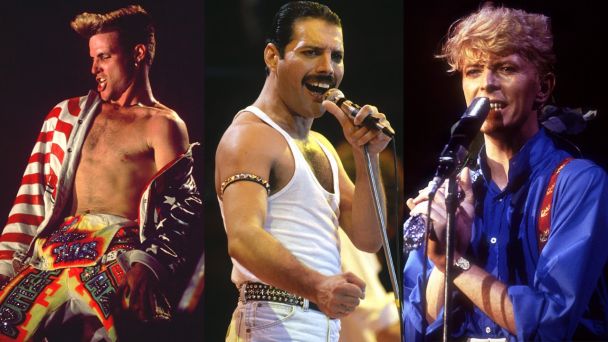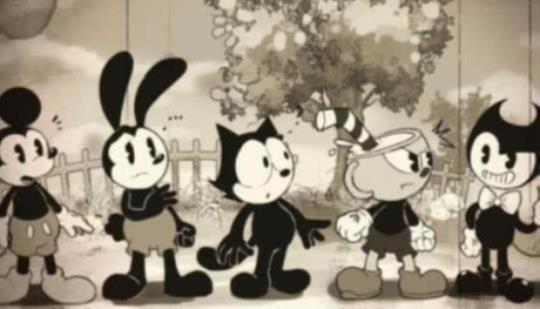When we run out of game development ideas, there is tendency to reference successful games that we love. How many games have we seen that are too similar with something else that we have seen before? Should game developers only make original games, or do they risk copying an idea? Besides, isn’t the objective to make great products that people enjoy nonetheless?
This opinion piece is not legal advise. I recommend that you look up a trained lawyer in intellectual property and copyright infringement to have a much better understanding. Nonetheless, here are my thoughts around the idea about copying ideas. I aim to differentiate copying ideas and copying inventions, or in our case, copying a game product.
Do great artists… steal ideas?
When talking about innovation, the late Steve Jobs infamously ascribed the quote to the late Pablo Picasso. Apple certainly allegedly copied several ideas to incorporate into their products (see Xerox). At the same time, Jobs had publicly accused Microsoft from ripping off the Mac. However the technology that both companies bring to world found their own audiences, and have delivered tremendous value. In other words, no one is really complaining (maybe there are, but we generally don’t care).
This however seems to edge out the question about ethics and morality in copying ideas. We can expand on more blatant observations like Huawei stealing from Cisco (and now they sue Verizon over alleged patent violations), Battlestar Galactica stealing from Star Wars, and Vanilla Ice stealing from Queen and David Bowie. At some point though, great ideas – even original sounding ones – have drawn reference and inspiration from somewhere else. If not, creators are likely not the only ones in the world who had ever thought about the same ideas.
Ideas cannot be copyrighted
So says IPwatchdog in Protecting an Idea: Can Ideas Be Patented or Protected? The difference is what an idea is and an invention is. Ideas cannot be treated as intellectual property but inventions can. An invention, as defined in this article, is “is the culmination of the innovation part of the journey“. When we see a product and copy it, there is legal grounds for a lawsuit. This is commonly so if we copy the product itself (think about IP things like character, graphics, explicit copy of the features and game play). However, if the product represents an idea, and you copy only that idea, your attorney may not recommend going to court. The same may be said of your accuser.
I am not legally trained, therefore please read the above paragraph with discretion.
When homage becomes a blatant rip-off
I mentioned Vanilla Ice. Vanilla Ice wrote a hugely successful hip-hop song in the early 90s called Ice Ice Baby. As a kid then, I heard that bass line for the first time, and thought of Vanilla Ice a genius. I later discovered an older song called Under Pressure by Queen and David Bowie had that bass line. Upon closer inspection did I learn that even the keyboard bit was ripped off.

That was when learned about a term called sampling. In sampling, artists use tracks from existing songs and supposedly makes new songs of their own. The attempted justification was that the ripping artist was paying some form of homage to the original creator, and this should be viewed in some form of respect than theft. Unfortunately in the case of Vanilla Ice (and later many other artists), this was copyright infringement of intellectual property. The court ruled that paying homage was not good enough reason, and Vanilla Ice was ordered to pay compensation. I was disappointed with my new idol, but still continued rapping to the song with friends in the school hallways. We still encouraged other friends to buy the album (yeah we meant to have more friends to “stop, collaborate and listen“).
(Side note: Vanilla Ice more recently revealed that instead of fighting in court, he outright struck a deal in buying a portion of Under Pressure.)
In the indie games world, the attempted justification about homage was of Enchanted Portals having ripped off Cuphead. The game play and even the graphics style made it too difficult to call it a homage than a rip-off. Enchanted Portals probably lost the argument when they copied Cuphead‘s distinctive rubber-hose animation style. The online-community was the judge on the matter, and Enchanted Portal’s developers decided to take their work to another direction.

(from https://n4g.com/news/2107803/did-cuphead-copy-mickey-mouse-for-success)
But is it then fair for me to ask where Cuphead copied their animation idea from? Disney however didn’t seem to have an issue with that, and had also called to “touch base”.
I referenced my game from another game too
Well I wouldn’t call it a game because all I ever completed was a demo. When I posted my short Boulders! demo on Indie Games Developer on Facebook, some people thought that I referenced Battletoads. However, that was incorrect. Someone later commented correctly that the boulder fleeing idea came from a very old game called Rick Dangerous. My game however was not a rip off of Rick Dangerous itself. It did not share the same game play, and also not the characters or other intellectual properties like the graphics.
But did Rick Dangerous come up with that idea? For sure not. Steven Spielberg and Harrison Ford’s classic Raiders of the Lost Ark probably invented the scene. Baby Kermit the Frog on Muppet Babies, and much later Crash Bandicoot followed suit with this reference.
That gray area that you can do little about… or that area that you appreciate the reference
If we therefore recognize that there really is no way to make an idea exclusive, then there has to be some sort of an agreement to be established when a rip-off or an accused rip-off begins to surface. For some like Infiniminer vs Minecraft, the successor may develop too strong a market support. For others, it is to be explicit at the start that the product is made with a reference in mind (see Axiom Verge vs Super Metroid). I suppose when the original creator does not challenge the latter developer, then it means that all is well.
Therefore, I think it really boils down to respect. If a game developer intends to copy an idea (I don’t care whether you call it “inspired by”, “pay homage to”, “reference to”), it is a goodwill and professional gesture to say where it came from. Where it came from probably also came from another place, but that is for the (more) original creator to give credit to. And maybe if the (more) original creator said no, a commendable thing to do is to discuss about his or her view, and exercise respect.
As a game developer whose work is being copied from, you have the right to be upset about it, take legal action about it, or be cool about it too. Either way, you are right to feel however you want. Besides, unless you go to an extent of a patent, it is also probably morally questionable when you insist that your idea came only from you and that nobody else in the entire world has the right to think of the very same idea that you did. However, if anyone blatantly stole your idea and refused to give credit, and you feel you have grounds for legal action, by all means, you have all the right to go ahead.
Here is another case in point. Somebody invented the wheel. Wheels can probably be considered as intellectual property than merely an idea, but we already know what it is said about reinventing wheels. We may also want to remember that they were not patented to begin with. Thankfully so.